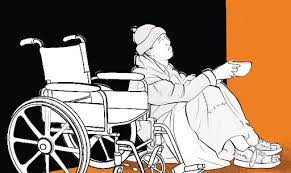
Stakeholders in Vihiga county have
called for digital inclusion, improved access to technology and empowerment of
youths living with disability.
Children with Disabilities Social
Organization (CWDSO) founder Judith Olimba said they have intensified campaigns
to promote digital inclusion and empowerment for persons living with
disability.
She spoke during a stakeholders’
engagement forum at Kegoye in Vihiga,
The meeting brought together
religious leaders, community representatives, media practitioners and county
government officials.
Olimba said the campaigns seek to
bridge the digital gap and enhance access to services and opportunities for
PWDs, particularly children and youth.
The campaigns are also advocating
for training on Artificial Intelligence and Information and Communication
Technology (ICT).
They seek to promote accessibility,
universal design, assistive technologies and strategic partnerships with the government
and private institutions.
“Digital transformation must be
driven by children and youth with disability who best understand the challenges
they face. We are working to ensure digital inclusion becomes a tool for
empowerment and not another barrier,” Olimba said.
Vihiga County National Council for
Persons with Disabilities (NCPWD) co-ordinator Ruth Oyier said the county has
more than 29,000 registered persons with disability.
She said access to technology and
digital tools remains a significant challenge with many special schools lacking
the devices needed to help learners engage meaningfully in the digital economy.
“Most of our special schools lack
digital devices such as computers that can help learners acquire vital ICT
skills,” Oyier said.
Officials from NCPWD said digital
literacy among PWDs remains low due to limited access to assistive technologies,
high costs and inadequate training.
PWDs, led by Nelson Bwire, who is
visually impaired, are calling for inclusion through AI, ICT training and
accessible digital design.
“We need assistive tools such as
screen readers, voice recognition software, Braille displays, sign language
video tools and adaptive keyboards to overcome barriers faced by people with
visual, hearing, physical, or cognitive impairments,” he said.
Participants urged the government
and private sector players to invest in accessible technologies and digital
skills training for persons with disabilities.
They also called for donations of
modern computers, smartphones and other digital equipment to special schools.
Participants said there is need to
integrate disability inclusion into all public service platforms to ensure
equitable participation in education, employment, and governance.












